If you’re considering starting a local freight delivery business, there are several key steps you’ll need to take to ensure your success. From understanding the industry to researching the competition, developing a solid business plan, and securing funding, starting a local freight delivery business requires careful planning and attention to detail.
In this article, we’ll guide you through the process of starting your own local freight delivery business, from the initial research phase to setting up operations, marketing your services, and building long-lasting customer relationships. By following these steps and embracing technology and innovation, you can overcome common challenges and ensure the success of your local freight delivery business.
Key Takeaways:
- Starting a local freight delivery business requires careful planning and attention to detail.
- Understanding the industry, researching the competition, and developing a solid business plan are key steps to success.
- Securing funding, setting up operations, marketing your services, and building long-lasting customer relationships are also critical for success.
- Embracing technology and innovation can help you overcome common challenges and stay competitive in a crowded market.
Table of Contents
Understanding the Local Freight Delivery Industry
If you’re considering starting a local freight delivery business, it’s crucial to have a good understanding of the industry you’ll be operating in. The freight delivery services industry involves the transportation of goods, including heavy cargo and packages, across different regions and countries. Cargo transportation is an essential part of the logistics industry, which also includes warehousing, inventory management, and export and import services.
Last-mile delivery is a critical aspect of the freight delivery industry, as it involves the transportation of goods from a distribution center to the final destination, which can be a home address or a business. This stage of the delivery process can be challenging, considering factors such as traffic congestion, delivery windows, and the need for efficient logistics solutions.
Logistics solutions are a vital component of the freight delivery industry, helping businesses optimize their delivery processes and reduce costs. Some of the popular logistics solutions used in the industry include automated routing and scheduling tools, real-time tracking systems, and route optimization software.

The freight delivery industry is highly competitive, with many players offering a range of services, from express delivery to same-day delivery. As a local freight delivery business, you need to have a clear value proposition that sets you apart from the competition.
Researching the Market and Competition
As you begin planning your local freight delivery business, it’s essential to conduct extensive market research to identify your target audience and evaluate your competition. This research will help you understand customer needs and preferences, giving you the insights necessary for developing services that meet and exceed their expectations.
To differentiate your local delivery company from competitors, consider offering specialized services such as freight forwarding, same-day delivery, or reliable shipping options. By providing unique solutions to your customers’ transportation needs, you can establish your brand as a leader in the industry.
Additionally, take the time to research the local delivery market and identify gaps in the services currently offered by your competitors. By addressing these gaps, you can create a niche for your business and attract customers who are underserved by existing services.
When researching your competition, pay attention to their pricing strategies, marketing tactics, and service offerings. This information can help you create a competitive pricing structure and marketing plan for your business.
Overall, thorough market research can help you create a business that is uniquely positioned to meet the needs of your target audience, offering specialized services that set you apart from competitors.

Developing a Business Plan
Starting a local freight delivery business requires careful planning and a comprehensive business plan. This document will serve as a roadmap for your business, helping you define your vision, mission, and goals, as well as the strategies and tactics you will use to achieve them. Here are the key steps involved in developing a business plan for your local courier services:
Determine Your Target Market
The first step in creating a successful local freight delivery business plan is to identify your target market. Who are your ideal customers? What are their needs and preferences? What types of delivery services are they looking for? Conduct market research to gather demographic and psychographic data that can help you create customer personas and segment your market effectively.
Define Your Services
Define the services your local courier services will offer. Will you specialize in same-day delivery, freight forwarding, or last mile delivery? Will you provide secure warehousing and inventory management? Determine the services that your business will offer and how you will differentiate yourself from your competition.
Set Pricing Strategies
Setting pricing strategies is crucial to the success of your business. Calculate your operational costs, including fuel, vehicle maintenance, employee salaries, and insurance, and factor these costs into your pricing structure. Research your competition to ensure your pricing is competitive but profitable.
Outline Your Marketing and Operational Plans
Develop a marketing plan to promote your local freight delivery business. Define your target audience, create a brand identity, and choose the appropriate marketing channels, such as social media platforms, email marketing, or search engine optimization. Also, outline your operational plan and logistics processes to ensure your business runs efficiently and cost-effectively.
Use Technology to Optimize Your Business
Use innovative technology solutions to streamline your operations and optimize your business performance. Invest in GPS tracking systems, fleet management software, and cloud-based inventory management tools to improve visibility and efficiency. Also, consider using automation tools to streamline your billing, invoicing, and reporting processes.
Creating a comprehensive business plan is crucial to the success of your local courier services. It provides a clear direction for your business and helps you identify opportunities, mitigate risks, and make informed decisions. Use the above steps to create a winning business plan for your local freight delivery business.
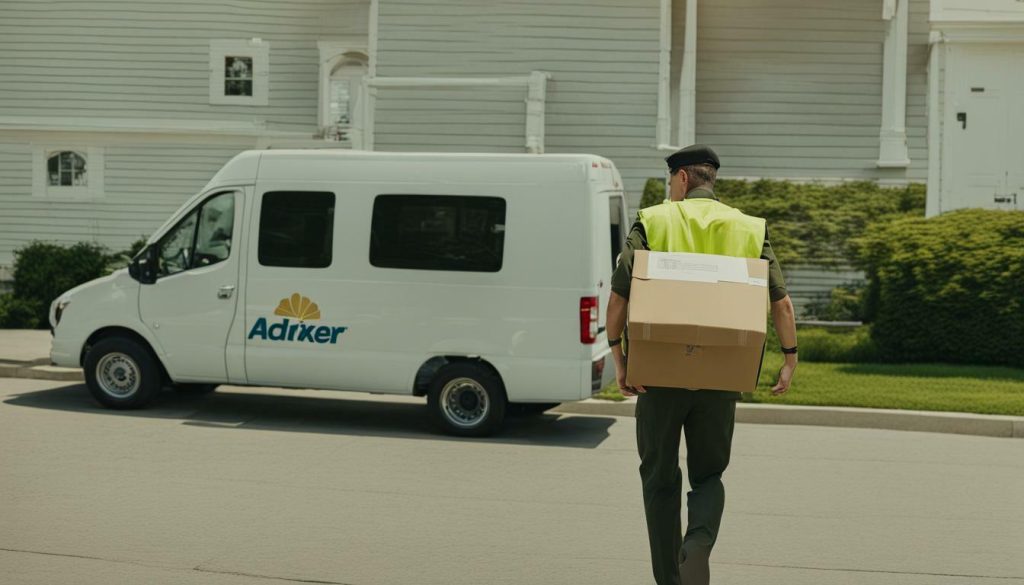
Obtaining Necessary Licenses and Permits
Starting a local freight delivery business requires complying with legal and regulatory requirements. Obtaining necessary licenses and permits is a crucial step towards ensuring the legitimacy and credibility of your business.
Research the specific licenses and permits needed for a local freight delivery business in your state or local jurisdiction. Some of the common ones include a business license, commercial driver’s license, and motor carrier authority. Additionally, you may need to obtain permits for hazardous materials transportation or oversized cargo transportation, depending on the nature of your business.
Partnering with a logistics solutions provider can simplify the licensing and permitting process. They can help you understand the complex regulations and requirements and guide you through the application process, ensuring compliance with industry standards.
Insurance is another important aspect of obtaining necessary licenses and permits. Adequate coverage can protect your business and clients from potential liabilities and losses. Consult with an insurance professional to determine the types and levels of insurance coverage needed for your local freight delivery business.
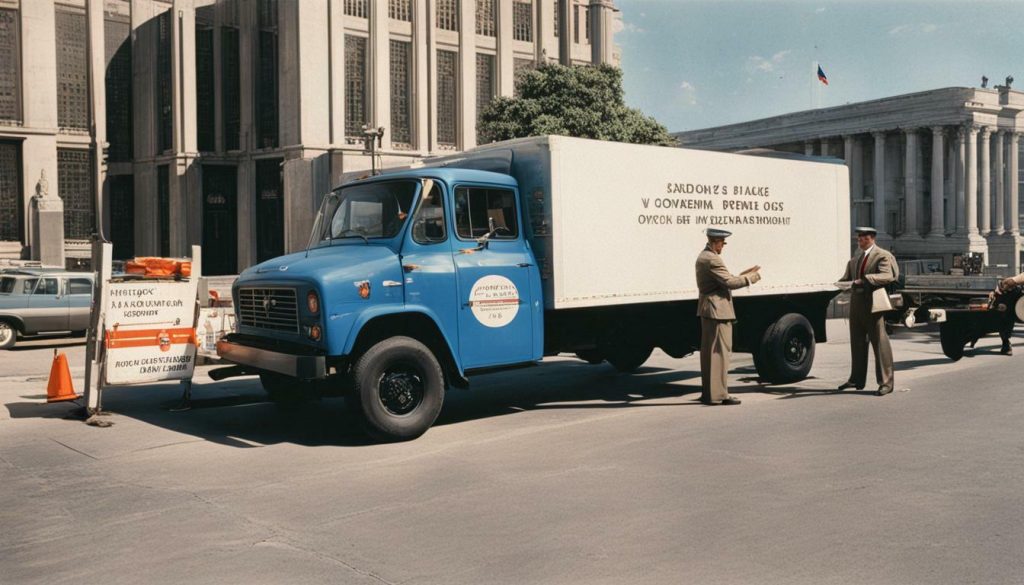
| Licenses | Permits |
|---|---|
| Business license | Hazardous materials transportation |
| Commercial driver’s license | Oversized cargo transportation |
| Motor carrier authority |
Securing Funding for Your Business
Starting a local freight delivery business requires sufficient capital to cover the initial expenses, such as purchasing or leasing vehicles, acquiring necessary equipment, and hiring staff. If you are unable to self-finance your business, there are several funding options available to you.
One option is to secure a bank loan, which requires a solid business plan and a good credit score. Consider reaching out to small business development centers or financial advisers to guide you through the process.
Grants are another funding option that can provide financial assistance for specific aspects of your business, such as research and development or getting involved with a local community project. Check with your local and state governments, as well as nonprofit organizations, to see if they offer any grants applicable to local freight delivery businesses.
If you are willing to give up partial ownership of your business, investors can provide the necessary funding in exchange for equity or shares in your company. However, this option requires a convincing business pitch and a solid plan for growth and profitability. Utilize networking events and pitch competitions to connect with potential investors.
Starting a local freight delivery business can be a significant investment, but securing the right funding can help you launch a successful operation and achieve long-term profitability.
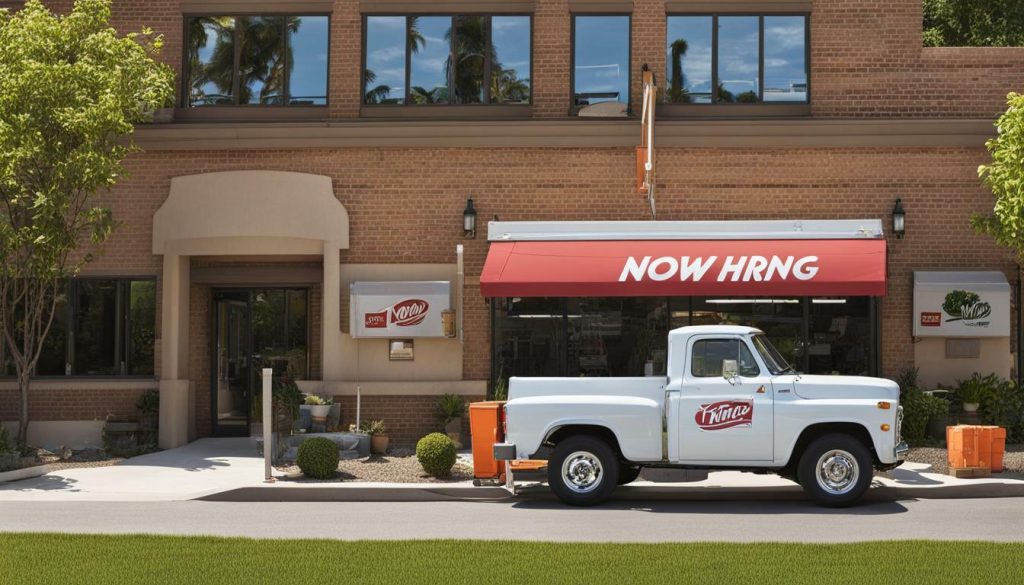
Setting Up Your Operations
Once you have established your local freight delivery business and obtained the necessary licenses and permits, it’s time to focus on setting up your operations. This includes sourcing vehicles, hiring and training staff, establishing partnerships with cargo transportation providers, and implementing efficient logistics processes to ensure timely and reliable delivery of goods.
The success of your local freight delivery business will largely depend on the efficiency and effectiveness of your operational processes. You will need to research and invest in reliable vehicles that are suited to the type of cargo transportation you offer. Whether you are transporting small packages or larger, bulkier items, it is important to ensure that your vehicles are well-maintained and capable of safely transporting goods over various distances.
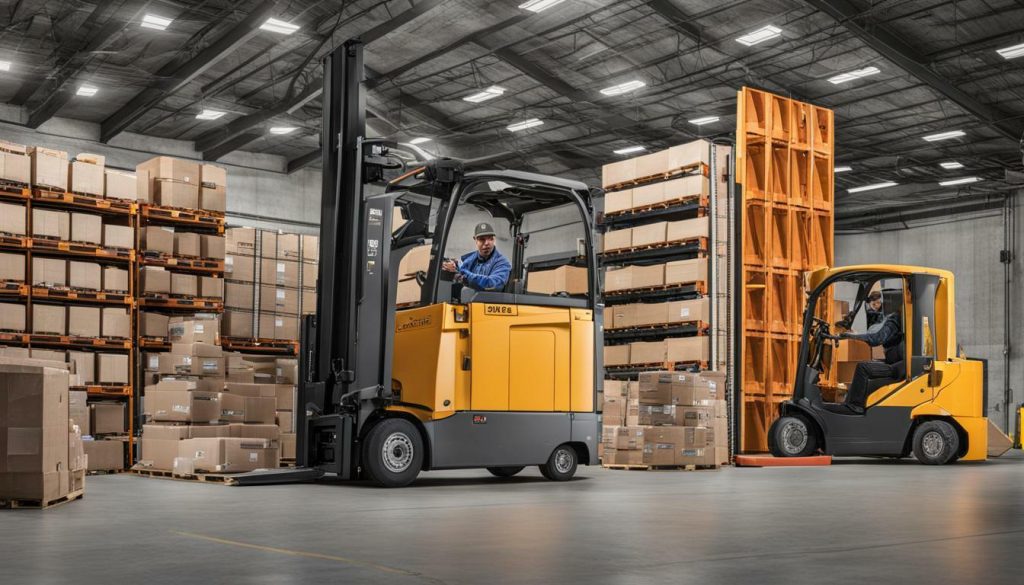
Your staff will play a crucial role in ensuring the smooth running of your operations. Make sure to hire individuals with experience in the freight delivery industry or provide thorough training to new employees. This will not only ensure that your team is well-equipped to handle the challenges of local freight delivery, but also help to build a positive reputation for your business with customers.
Establishing partnerships with cargo transportation providers can also be key to the success of your local freight delivery business. This will provide you with access to a wider range of transportation options, helping to ensure that you can offer your customers the right logistics solutions for their needs. It will also allow you to tap into the expertise of other professionals in the industry, potentially leading to further business partnerships down the line.
Marketing and Promoting Your Business
Now that you have set up your local freight delivery business, it’s time to focus on marketing and promoting it to potential customers. As a startup, you need to create a strong brand identity and highlight your competitive advantage to stand out in a crowded market. One effective strategy is to offer same-day delivery services, which can differentiate your business from competitors and attract customers with urgent shipping needs.
To reach your target audience, consider using both online and offline advertising channels. Online options may include social media platforms, Google Ads, and digital directories, while offline options may include local newspapers, flyers, and billboards. Building a strong online presence through search engine optimization (SEO) and content marketing can also help attract organic traffic to your website.
When creating your marketing materials, make sure to highlight the benefits of choosing your local freight delivery business, such as reliable shipping services and personalized customer support. Utilizing customer testimonials and case studies can also provide social proof and establish credibility with potential clients.
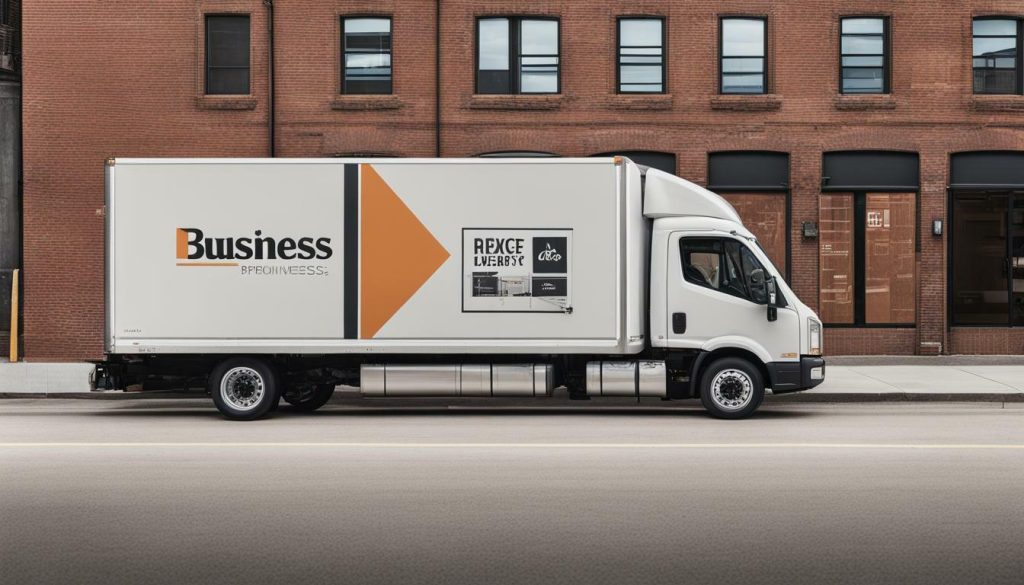
Building partnerships with other businesses in your local community can also be an effective marketing strategy. For example, you can offer exclusive discounts to customers referred by partner organizations or provide special deals for bulk shipping orders.
Ultimately, the key to successful marketing and promoting your local freight delivery business is to understand and cater to your target audience’s needs. By providing high-quality, reliable services that meet their shipping needs, you can build a loyal customer base and position your business for long-term success.
Managing Customers and Building Relationships
As a local freight delivery business owner, providing reliable shipping services is critical for building long-term relationships with your customers. Your clients expect their packages to be delivered on time and in good condition, so it’s essential to invest in efficient logistics processes and tracking systems to ensure prompt and accurate deliveries.
One way to build and maintain customer relationships is to establish clear communication channels, such as a responsive customer service team and regular email updates on delivery status. A tracking system that allows clients to monitor their shipment’s progress can also help build trust and confidence in your services.
When customers have inquiries or complaints, it’s important to handle them professionally and empathetically. Promptly responding to customer concerns and offering solutions to their problems can turn a negative experience into a positive one and help establish your reputation as a reliable and customer-centric local freight delivery business.
Providing exceptional customer service is not only good for client relationships but can also lead to repeat business and positive word-of-mouth referrals. Always strive to exceed customer expectations and go above and beyond in delivering reliable shipping services.
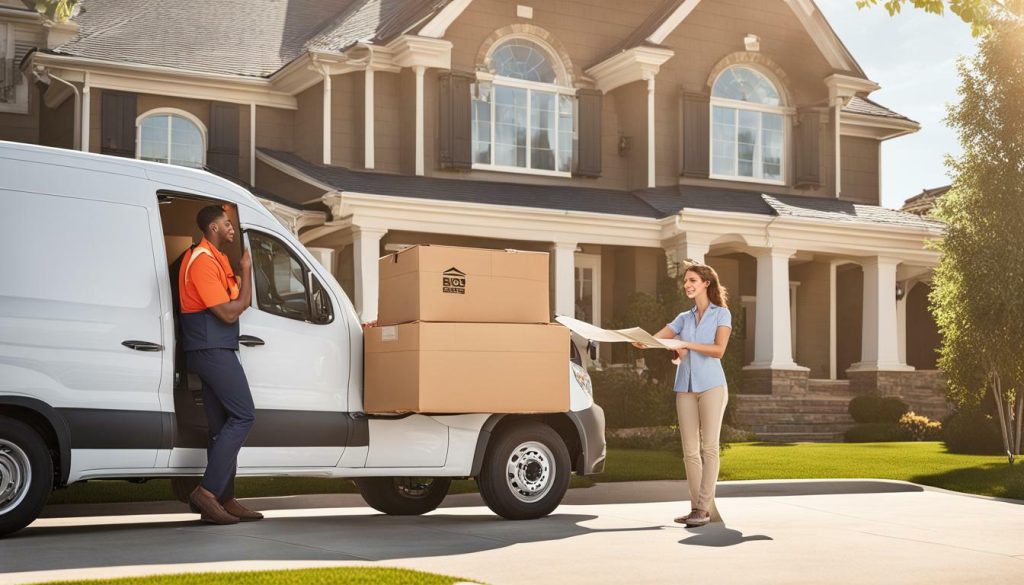
Embracing Technology and Innovation
Technology and innovation are driving the local freight delivery industry forward, and staying up-to-date with the latest trends can help your business remain competitive and efficient. Automation, real-time tracking systems, and efficient route planning are just a few of the emerging technologies that can enhance the customer experience and streamline operations.
For example, implementing automated systems for handling freight can reduce errors and increase speed, ultimately enhancing your operations and customer satisfaction. Real-time tracking systems allow you to keep tabs on shipments, provide accurate delivery times, and improve communication with customers.
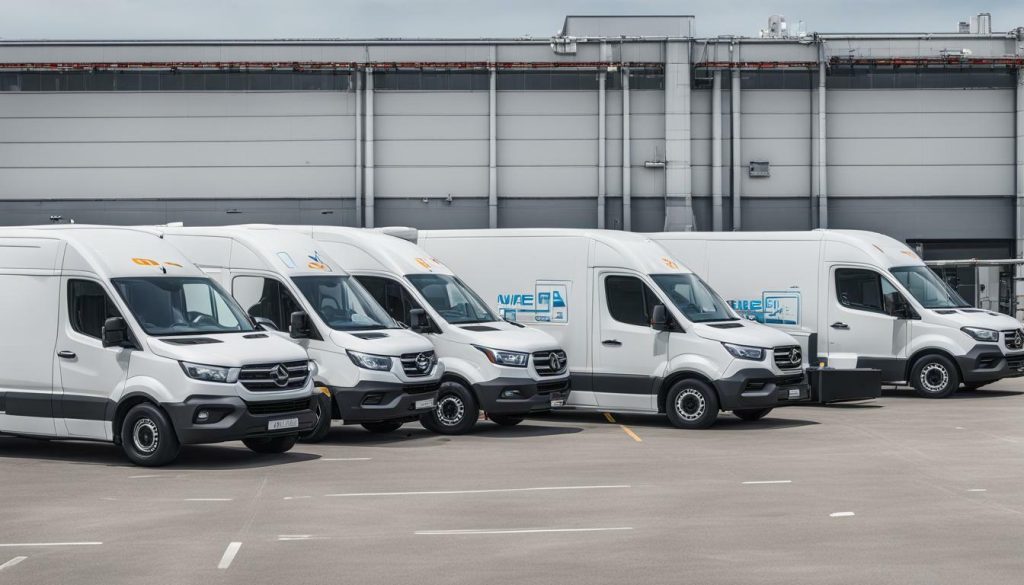
Efficient route planning can save time and reduce fuel costs, increasing profitability. Many software solutions and applications are available to help streamline the route planning process, including those that take into account traffic patterns, weather conditions, and delivery schedules.
By embracing technology and innovation, you can improve your local freight delivery business’s operations and overall customer experience. Consider exploring new solutions and implementing those that will help your business thrive.
Overcoming Challenges and Ensuring Success
Starting a local freight delivery business can be a challenging endeavor, but with proper planning and implementation of logistics solutions, you can ensure its success.
Managing Operational Costs
One of the biggest challenges faced by local freight delivery businesses is managing operational costs. From vehicle maintenance to fuel expenses, these costs can quickly add up. To overcome this challenge, consider implementing efficient route planning software to optimize your delivery routes and reduce fuel usage. You can also explore partnering with other businesses to share delivery costs and increase revenue.
Optimizing Delivery Routes
Efficient delivery routes are crucial to the success of a local freight delivery business. By minimizing travel time and maximizing the number of deliveries per trip, you can improve your efficiency and profitability. Consider using real-time tracking systems and GPS technology to monitor and adjust delivery routes as necessary.
Staying Competitive in a Crowded Market
The local freight delivery industry is highly competitive, and staying ahead of the competition can be a challenge. To stay competitive, consider offering unique services such as same-day delivery, weekend delivery, or specialized cargo transportation. Building strong relationships with customers, providing reliable shipping services, and establishing a recognizable brand identity can also help differentiate your business from competitors.
Adapting to Changing Customer Demands
Customer demands and expectations are constantly evolving, and it’s important for a local freight delivery business to adapt to these changes. Consider implementing new logistics solutions, such as automation and real-time tracking systems, to improve your operations and meet customer demands. Keep an open line of communication with your customers to understand their needs and preferences.
By effectively managing operational costs, optimizing delivery routes, staying competitive, and adapting to changing customer demands, you can overcome the challenges inherent in starting and managing a local freight delivery business. With careful planning and execution, your business can thrive in this dynamic and growing industry.

Final Thoughts
Congratulations! You now have a solid understanding of what it takes to start and run a local freight delivery business. Remember, careful planning, market research, and a customer-centric approach are key to success in this industry.
Starting a local freight delivery business can be a challenging endeavor, but with the right mindset, resources, and strategies, you can overcome the obstacles and build a thriving operation. By understanding the local freight delivery industry, researching your market and competition, developing a comprehensive business plan, obtaining necessary licenses and permits, securing funding, setting up efficient operations, implementing effective marketing strategies, managing customer relationships, embracing technology and innovation, and overcoming challenges, you can position your business for long-term success.
Keep in mind that the local freight delivery industry is constantly evolving, so it’s important to stay up-to-date with the latest trends and technologies to remain competitive. By staying agile and adaptable, you can continue to provide reliable shipping services and exceed customer expectations.
Thank you for reading this guide on how to start a local freight delivery business. We wish you the best of luck on your entrepreneurial journey.
FAQ on Local Freight Delivery Business
Q: How do I start a local freight delivery business?
A: Starting a local freight delivery business involves various steps, including researching the market, developing a business plan, obtaining necessary licenses and permits, securing funding, setting up operations, and implementing effective marketing and customer relationship management strategies. Detailed guidance on each step can be found in the respective sections of this article.
Q: What is the local freight delivery industry?
A: The local freight delivery industry encompasses various services related to transporting goods within a specific area. It includes freight delivery services, cargo transportation options, last mile delivery challenges, and logistics solutions. Understanding the industry and its dynamics is crucial for starting and managing a successful local freight delivery business.
Q: How can market research help in starting a local freight delivery business?
A: Market research helps identify the target audience, understand customer needs, and evaluate the competition. It provides valuable insights into the demand for local delivery services, the preferences of potential customers, and the key factors that contribute to the success of a local delivery company, such as freight forwarding services and reliable shipping options.
Q: Why is a business plan important for a local freight delivery business?
A: A comprehensive business plan outlines the vision, goals, and strategies of a local freight delivery business. It helps in determining the target market, defining services, setting pricing strategies, outlining marketing and operational plans, and assessing the financial feasibility of the business. A well-developed business plan is essential for attracting investors and guiding the growth and success of the business.
Q: What licenses and permits are required to operate a local freight delivery business?
A: Operating a local freight delivery business requires obtaining necessary licenses, permits, and insurance to comply with legal and regulatory requirements. The specific requirements may vary based on the location and nature of the business. It is important to research and understand the local laws and seek guidance from relevant authorities to ensure compliance.
Q: What funding options are available for starting a local freight delivery business?
A: There are several funding options available, including self-financing, bank loans, grants, and investors. The choice of funding depends on various factors, such as the initial capital requirement, personal financial situation, and business growth plans. It is advisable to explore different options and prepare a compelling business pitch to attract potential investors.
Q: How do I set up the operations for my local freight delivery business?
A: Setting up the operations for a local freight delivery business involves sourcing vehicles, hiring and training staff, establishing partnerships with cargo transportation providers, and implementing efficient logistics processes. It is important to prioritize safety, reliability, and timely delivery while optimizing operational efficiency to meet customer expectations and stay competitive in the industry.
Q: What marketing strategies can I use to promote my local freight delivery business?
A: Promoting a local freight delivery business requires a combination of online and offline advertising, building a strong brand identity, leveraging social media platforms, and highlighting competitive advantages, such as offering same-day delivery services. It is important to target the right audience, effectively communicate the value proposition, and consistently deliver excellent customer service to attract and retain clients.
Q: How can I manage customers and build relationships in my local freight delivery business?
A: Managing customers and building relationships in a local freight delivery business involves providing reliable shipping services, implementing tracking and communication systems, promptly handling customer inquiries and complaints, and going the extra mile to exceed customer expectations. Building long-term relationships with clients is crucial for repeat business and positive word-of-mouth recommendations.
Q: How can technology and innovation benefit my local freight delivery business?
A: Embracing technology and innovation in the local freight delivery industry can bring numerous benefits, such as automation, real-time tracking systems, and efficient route planning. These advancements can streamline operations, improve efficiency, enhance customer satisfaction, and provide a competitive edge in the market. Staying updated with emerging trends and leveraging technology can contribute to the long-term success of the business.
Q: What are the common challenges faced by local freight delivery businesses?
A: Local freight delivery businesses often face challenges such as managing operational costs, optimizing delivery routes, staying competitive in a crowded market, and adapting to changing customer demands. Effective logistics solutions, continuous improvement, and strategic planning are essential for overcoming these challenges and ensuring the long-term success of the business.
Q: What are the key takeaways from this article on starting a local freight delivery business?
A: This article highlights the importance of careful planning, market research, and customer-centric practices for successfully starting and managing a local freight delivery business. It provides guidance on various aspects, including industry overview, market research, business planning, licenses and permits, funding, operations, marketing, customer management, technology adoption, and overcoming challenges. Implementing the strategies and recommendations discussed in this article can help aspiring entrepreneurs establish and grow a thriving local freight delivery business.


